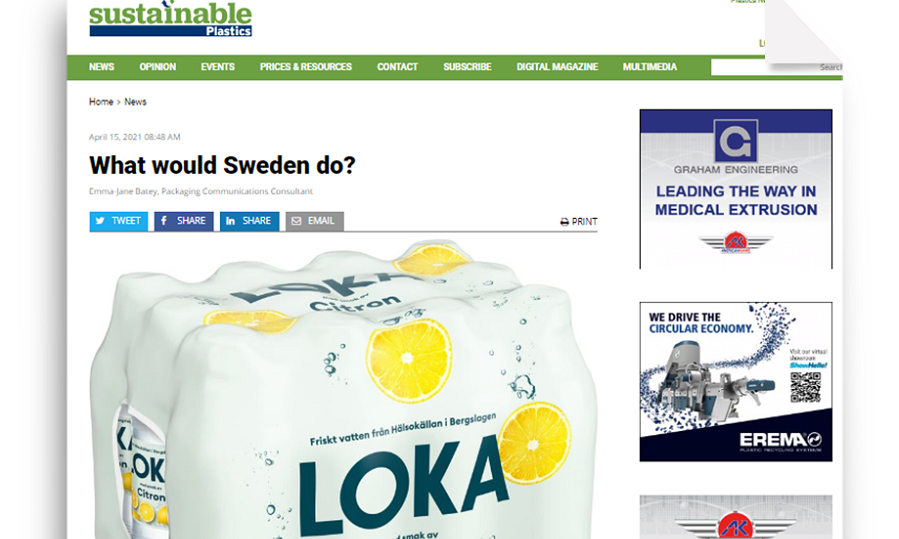
It’s said that the best time to start a pension is when you started working, and the second-best time is today. The circular economy is rather similar, in that ideal time to start would have been ages ago, and the next best time is now. Thankfully, we can look at how Sweden has done it. Rather than thinking ‘oh, it’s too late for the rest of us now’, we can just jump in and do the right thing from now on.
Let’s imagine that Sweden is our circular economy mentor. Let’s learn from how Sweden manages to recycle over 2 billion bottles and cans every year. Let’s copy how Sweden has integrated its deposit scheme in events arenas, shopping centres and grocery stores. Over 85% of all consumer packaging of cans and PET-bottles for beverages in Sweden is recycled, let’s do that too. There’s even a verb in Swedish - panta - that specifically means recycling packaging in collection points. We may or may not need a new verb.
A 36-year head start
A key element in the successful infrastructure that supports recycling in Sweden is Returpack, which was founded in 1984. Responsible for the Swedish deposit systems for metal cans and recyclable PET bottles for ready to drink beverages, Returpack is a privately owned company, owned by 50 percent by the Swedish Brewery Association (Sveriges Bryggerier), and by 25 percent each by the Swedish Food Retailers’ Federation (Livsmedelshandlarna) and the Grocery Store Association (Svensk Dagligvaruhandel).
An active supporter of Returpack is Spendrups Bryggeri AB, the biggest and most prominent Swedish family-owned and independent brewery, itself established in 1897 and today managed by the fourth generation of the founding family. Producing around 4 million hectoliters of beverages each year, Spendrups has contributed to building up globally recognised beer brands such as Heineken on the Swedish market, and its own sparkling water brand, Loka.
As a company that values both its heritage and its legacy, Spendrups is perfectly positioned to give an insight into how plastic packaging can be sustainable, with the advantages of being part of Sweden’s progressive infrastructure sits comfortably alongside its own dedication to long term responsibility.
Anna Lidström, Head of Sustainability at Spendrups, explains how the company’s philosophy and actions are in tune with how the Swedish beverage industry has had a circular approach to packaging for over 100 years. Lidstrom says, “The family spirit is strong at Spendrups; the long-term vision is that the company is supposed to be handed to the next generation, and so to do that properly, we must work in a way that is sustainable as well as profitable. We work in a circular manner through increasing use of recycled material in our packaging, striving to make our packaging 100% recyclable and utilising reusable packaging wherever possible.”
Read full article online at Sustainable Plastics